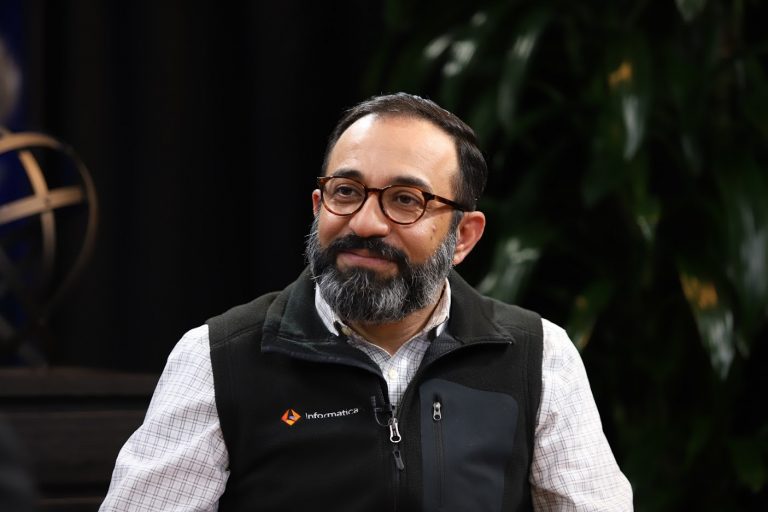 BIG DATA
BIG DATA
 BIG DATA
BIG DATA
 BIG DATA
BIG DATA
Continuing a theme that has become commonplace during 10 months of uproar in technology markets, Informatica Corp.’s fourth-quarter earnings release on Wednesday contained some good news and some bad news.
On the plus side, 42% growth in the company’s cloud annual recurring revenues exceeded the estimates of 35% to 40% growth the company issued the previous quarter. Earnings of 24 cents per share also came in ahead of analysts’ consensus estimates of 21 cents.
However, the data integration giant’s revenue of $398.8 million missed estimates by a little more than 1% and was down from $406.7 million in the same period a year ago.
Not surprisingly, Informatica chose to focus on subscription growth as it completes the transition away from its legacy license business. The combination of $1.5 billion in revenue and $450 million in cloud ARR for the full year was “a milestone,” Chief Executive Amit Walia (pictured) said in an interview with SiliconANGLE.
“Basically, that means that all net new business has pivoted toward cloud,” he said. “The platform is built. All new bookings that come in will be cloud-only.”
That’s a big step for a company that turns 30 this year and built a $450 million business before the cloud even existed. Informatica still has a large and “very, very stable” on-premises business with license renewal rates of well over 90%, Walia said.
“We’ll maintain those customers, but not bring in new business outside of cloud,” he said. Customer migration has been slow so far, with only 3.6% of maintenance customers having shifted to the cloud at this point, but Walia said he’s in no hurry.
“It’s still very early days and we have half a billion dollars of maintenance that we have the potential to convert,” he said. So far, customers that have shifted from on-premises to cloud subscription services have more than doubled their annual spending, he said.
Informatica opted not to help customers migrate but instead is farming out that work to partners, Walia said. “We’re not a services company; we’re a product company,” he said. “We did a lot of work over the last year-and-a-half so that we could create playbooks and give them to partners.”
In its earnings report, informatics said it now has 206 customers spending more than $1 million on subscriptions annually, up 35% over a year ago. The number of transactions the company processes in its integration cloud hit a monthly average of 53 trillion in the quarter, up 91% over a year ago.
Despite the generally positive quarterly results, Informatica has not escaped the spending malaise that has hit the entire tech sector this year. In January the company said it would lay off 450 employees, or about 7% of its workforce.
Walia the cuts did not reflect a slowdown in business but rather the efficiencies gained from the shift to the cloud. “We had engineers running the old product and the new product but we don’t need the old product anymore,” he said. “There was a huge amount of operational inefficiency we took out. Now we have a clean single cloud-only business model and we can scale from here.”
The CEO also said he believes the nature of the company’s business gives it some insulation from market fluctuations. “Data-driven digital transformation, which is fundamentally helping companies transform the future, is not going to go away,” Walia said. “People are going to be thoughtful about spending less on the softer areas, but they’re not going to slow down on whatever makes their supply chains more resilient or helps them get and retain new customers.”
Support our mission to keep content open and free by engaging with theCUBE community. Join theCUBE’s Alumni Trust Network, where technology leaders connect, share intelligence and create opportunities.
Founded by tech visionaries John Furrier and Dave Vellante, SiliconANGLE Media has built a dynamic ecosystem of industry-leading digital media brands that reach 15+ million elite tech professionals. Our new proprietary theCUBE AI Video Cloud is breaking ground in audience interaction, leveraging theCUBEai.com neural network to help technology companies make data-driven decisions and stay at the forefront of industry conversations.